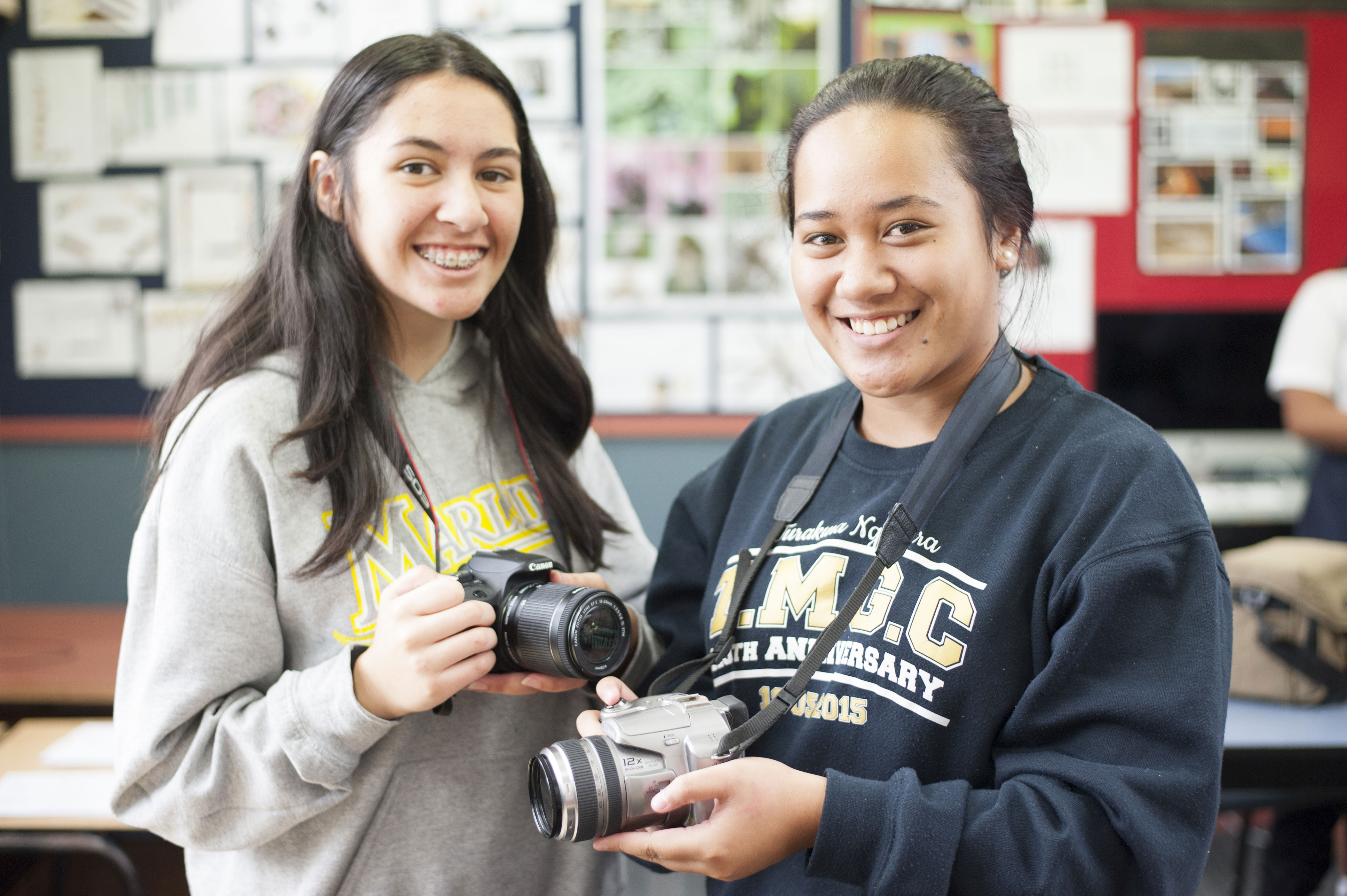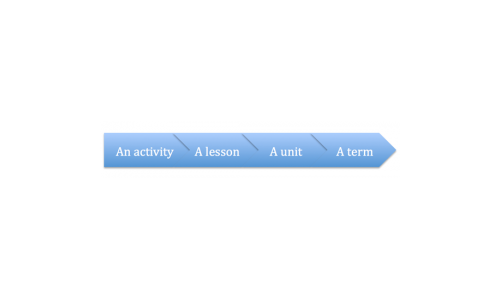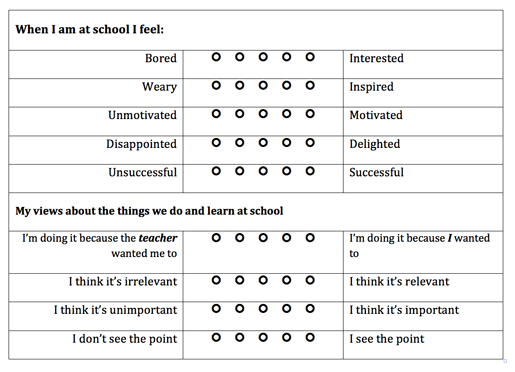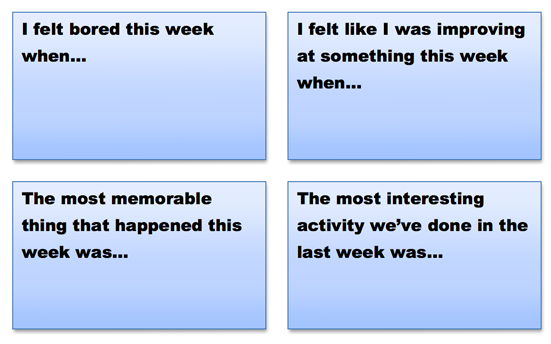Gathering feedback about key competencies in learning
This section provides possible indicators of key competencies and suggests ways of gathering feedback from students. Asking students how well key competencies are going in their classroom may not yield information. Asking about other aspects of the key competencies may give a more useful indication.

About this resource
This discussion tool can help teachers explore and embed the key competencies into the local curriculum.
Gathering feedback about key competencies in learning
What to gather feedback about?
In order to gain the best possible feedback from learners, you should aim to ask them about important aspects of the key competencies, rather than open statements like ‘how well they are going in the classroom’.
Five possible indicators of key competencies to ask about are:
- relevance to their lives and cultural backgrounds
- accessibility of content and learning styles
- interest and engagement
- motivation to learn
- application in learning across the curriculum and other aspects of their lives.
What to focus on?
It is useful to gather feedback at different points in time about:
- a specific activity
- a style of learning
- a lesson
- a sequence of lessons
- end of a term or year.

Ways to gather feedback from students
Student ratings provide an easy means of gathering information and analysing responses from a class or group of students. Questionnaires can be given on paper or set up online, for example, on Survey Monkey.
Learners could rate:
- the statements that indicate their accessibility, involvement, and interest in the programme of learning
- the frequency with which they apply their learning across relevant contexts
- the extent to which adults and students are responsible for organising authentic learning opportunities.
Interest and involvement
|
Strongly disagree |
Disagree |
Agree |
Strongly agree |
|---|---|---|---|---|
I am allowed to suggest things to learn about |
|
|
|
|
I am allowed to suggest activities to do |
|
|
|
|
The activity is relevant to my life experiences |
|
|
|
|
The activity suits my learning needs |
|
|
|
|
I am interested in the things we do in class |
|
|
|
|
I spend a lot of time waiting in class |
|
|
|
|
I think it's up to the teacher to decide what activities we do |
|
|
|
|
Relevance of learning
|
Never |
Sometimes |
Often |
Very often |
|---|---|---|---|---|
I use the learning I do at school in other places. |
|
|
|
|
At school, we think about things that are going on in our local community. |
|
|
|
|
At school, we think about things that are going on in Aotearoa, New Zealand. |
|
|
|
|
At school, we think about things that are going on in the world. |
|
|
|
|
As part of my learning, I get to do things in the local community. |
|
|
|
|
As part of my learning, I interact with others around the country. |
|
|
|
|
As part of my learning, I interact with others around the world. |
|
|
|
|
Responsibility for organising authentic, meaningful tasks
|
Who is responsible for organising events and activities that happen in your school? |
||||
|---|---|---|---|---|---|
Example events |
Only adults |
Mainly adults |
Adults and students together |
Mainly students |
Only students |
Assembly |
|
|
|
|
|
Kapa haka or cultural performances |
|
|
|
|
|
Cross-country team |
|
|
|
|
|
Inter-school sports competition |
|
|
|
|
|
School trip to the zoo |
|
|
|
|
|
School disco |
|
|
|
|
|
Art exhibition |
|
|
|
|
|
Newsletter |
|
|
|
|
|
Athletics day |
|
|
|
|
|
Application
|
0 |
1 |
2 |
3 |
4+ |
|---|---|---|---|---|---|
How many times in the last term has your learning involved: |
|
|
|
|
|
A visiting expert coming to the class (for example,tūpuna,kaitiaki, historian, scientist, musician, journalist) |
|
|
|
|
|
A whānau member with expertise sharing their skills |
|
|
|
|
|
Going to an interesting place close to school |
|
|
|
|
|
Going to an interesting place (real, or virtually) somewhere else in New Zealand |
|
|
|
|
|
Interest and motivation

Sentence starters are a way of easily getting student feedback at the end of a day, week, or term. Providing written or oral sentence starters makes it easy for students to respond to how they feel about their learning. Ākonga can write their feedback on a small piece of paper gathered anonymously. Continuing on from a sentence starter gives the prompt that many need to express their view. (Some examples are below.)

Text version: Four blue, stacked boxes:
I felt bored this week when...
I felt like I was improving at something this week when...
The most memorable thing that happened this week was...
The most interesting activity we've done in the last week was...
Photographs from learning experiences are a useful resource to prompt students' feedback. They may be used to getting feedback in a one-on-one, group, or class discussion or independently of the kaiako.
The photograph may be of:
- a group working on a task
- a student working on a task
- a shared classroom experience
- a learning experience outside the classroom.
The photo can then be used in a discussion with students to find out about the following:
- Relevance: What was the point of what you were doing? Do you feel this activity supports who you are and what makes you unique?
- Accessibility: Did this activity meet your learning needs?
- Interest and engagement: Was this interesting or not? Why? Do you think you’ll carry on learning about this?
- Motivation: Why were you doing this?
- Application: How might you use what you were thinking about in other situations?


